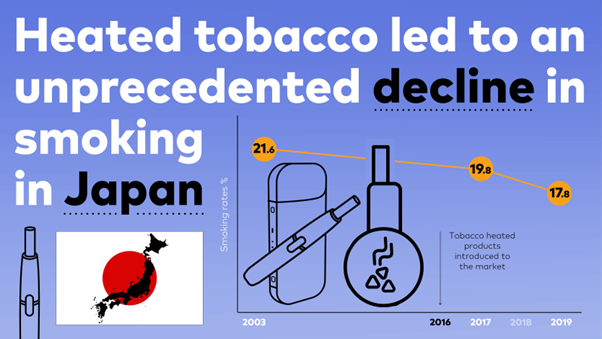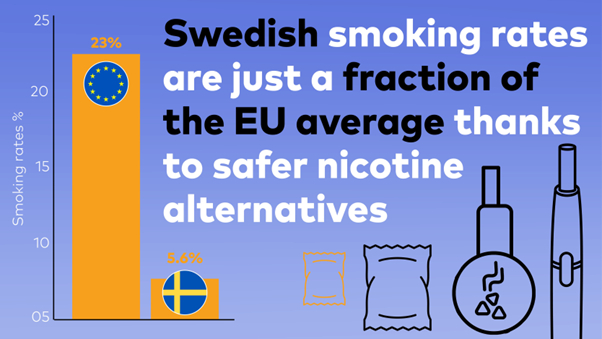 The Tholos Foundation, in partnership with Japan-based Pacific Alliance Institute and Sweden-based consulting firm Scantech Strategy Advisors, has released a policy paper, Safer Nicotine Works, on how Sweden and Japan have successfully reduced smoking rates by introducing safer alternative nicotine products.
The Tholos Foundation, in partnership with Japan-based Pacific Alliance Institute and Sweden-based consulting firm Scantech Strategy Advisors, has released a policy paper, Safer Nicotine Works, on how Sweden and Japan have successfully reduced smoking rates by introducing safer alternative nicotine products.
Safer Nicotine Works investigates oral nicotine and heated tobacco’s effects on smoking rates in Sweden and Japan. It follows Vaping Works, which studied four countries’ vaping experiences. The latter found that nations adopting vaping, like the United Kingdom, France, Canada, and New Zealand, experienced smoking rate reductions at double the global average.
In Japan, the introduction of heated tobacco products has remarkably reduced male smoking rates below 30 percent for the first time, reversing previous stagnation.
Sweden, with a smoking rate of 5.6 percent 1 is poised to be “smoke-free” within the year. The recent decline in smoking is attributed to the rise of nicotine pouches introduced in 2019.

Tholos Foundation’s research indicates consumers in both countries led the shift to safer alternatives. Policymakers’ key role was to ensure these alternatives were accessible and viable. Data confirms that safer nicotine significantly aids smoking cessation. With safer nicotine products like vaping, heated tobacco, nicotine pouches, and snus, smoking rates are dropping rapidly.
“Safer nicotine is, quite literally, saving lives around the world,” said Tholos Foundation Vice President Lorenzo Montanari in a statement. “The experience of Sweden and Japan, just as in the U.K., Canada, New Zealand and France, proves that when people have access to safer products, they choose them in huge numbers. We now have the tools we need to fight harmful high smoking rates: governments around the world must now support their citizens to make a better choice.”
According to the Tholos Foundation Sweden and Japan’s success in lowering smoking rates highlights the efficacy of comprehensive tobacco control strategies. “They have regulated alternative nicotine products, prioritizing public health,” the organization wrote in a press note. “Sweden and Japan’s experiences provide key lessons for nations aiming to decrease smoking and encourage smoke-free alternatives. By enabling access to safer alternative nicotine products and implementing appropriate regulations, countries significantly improve public health outcomes and address smoking.”


